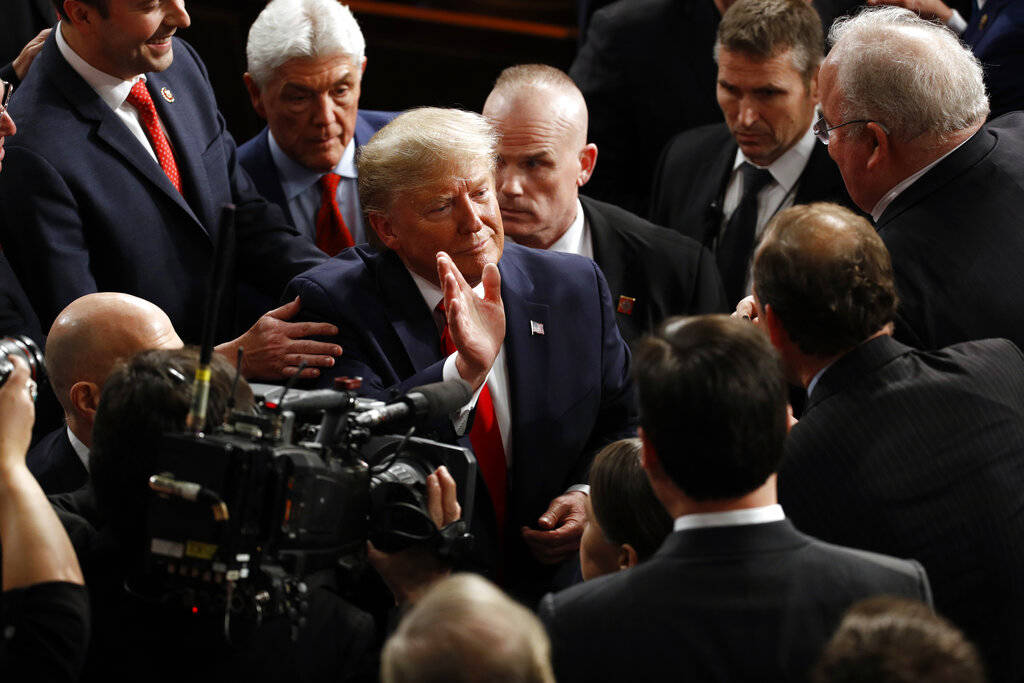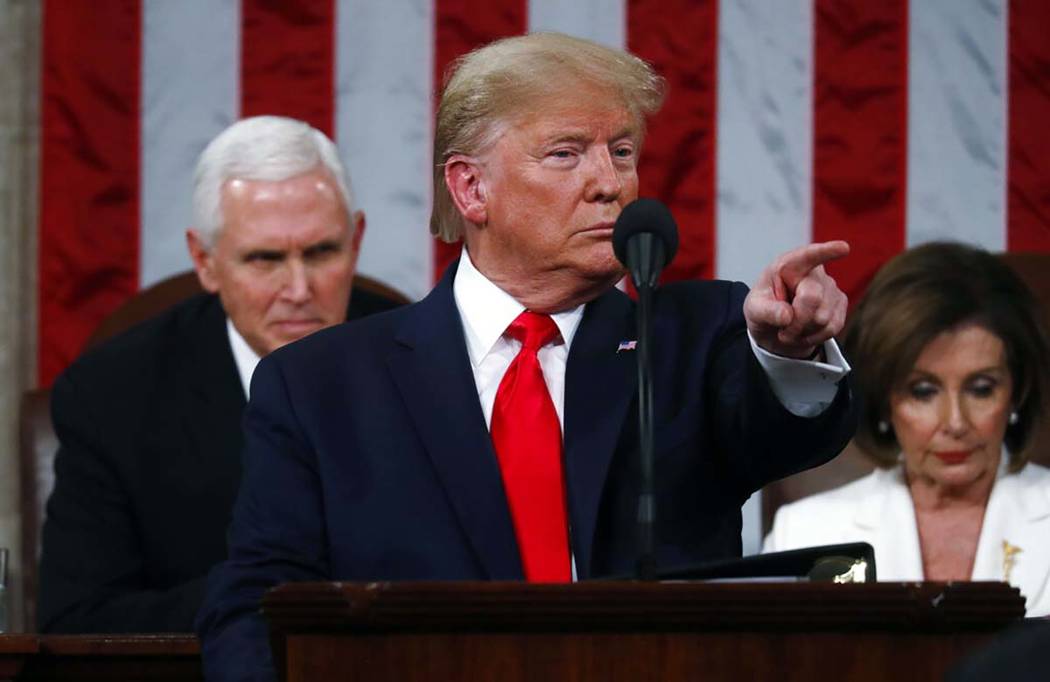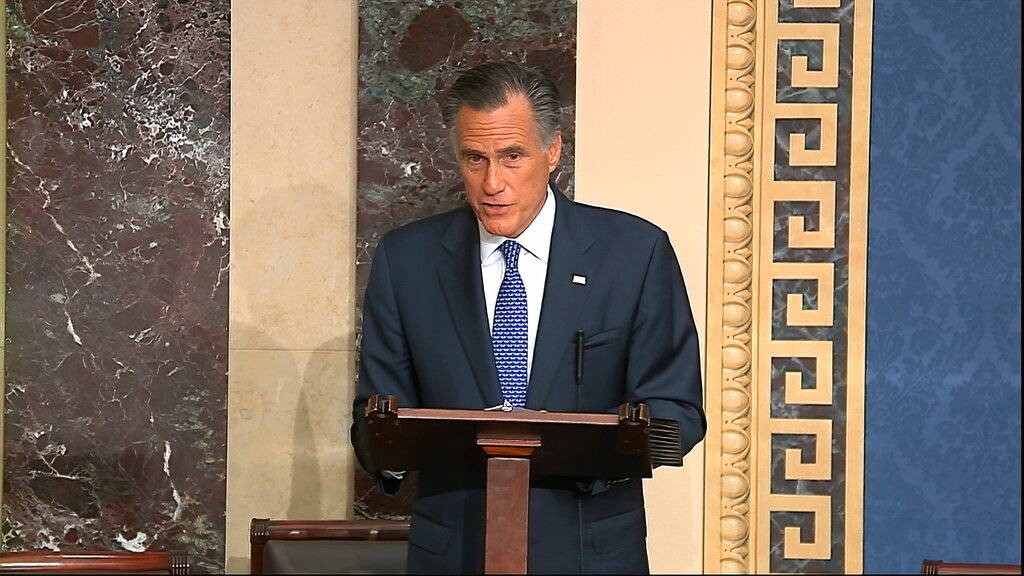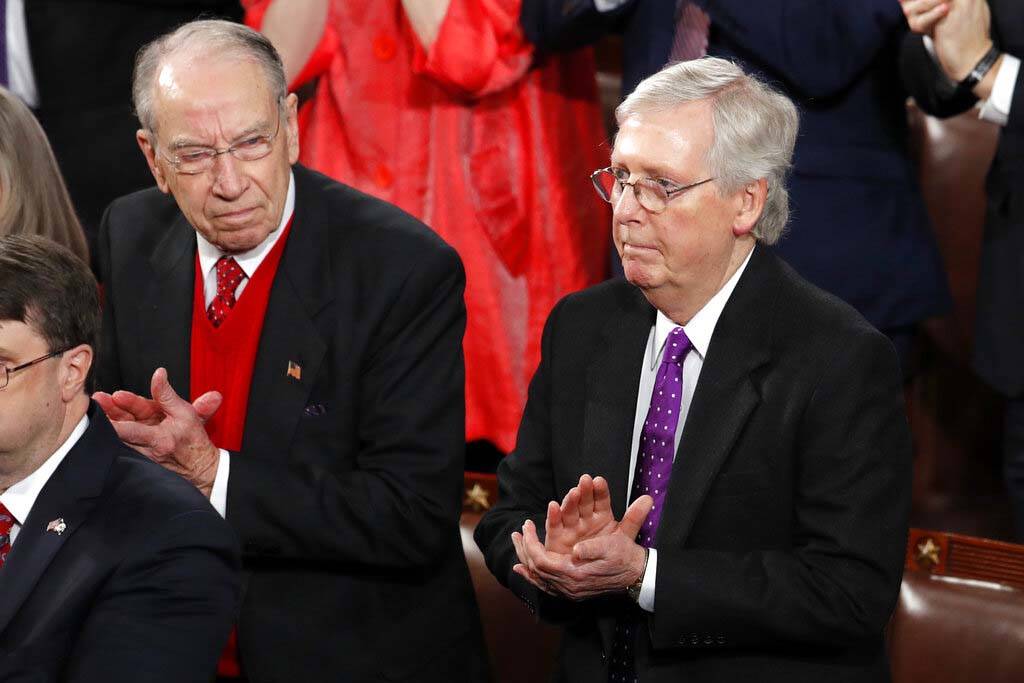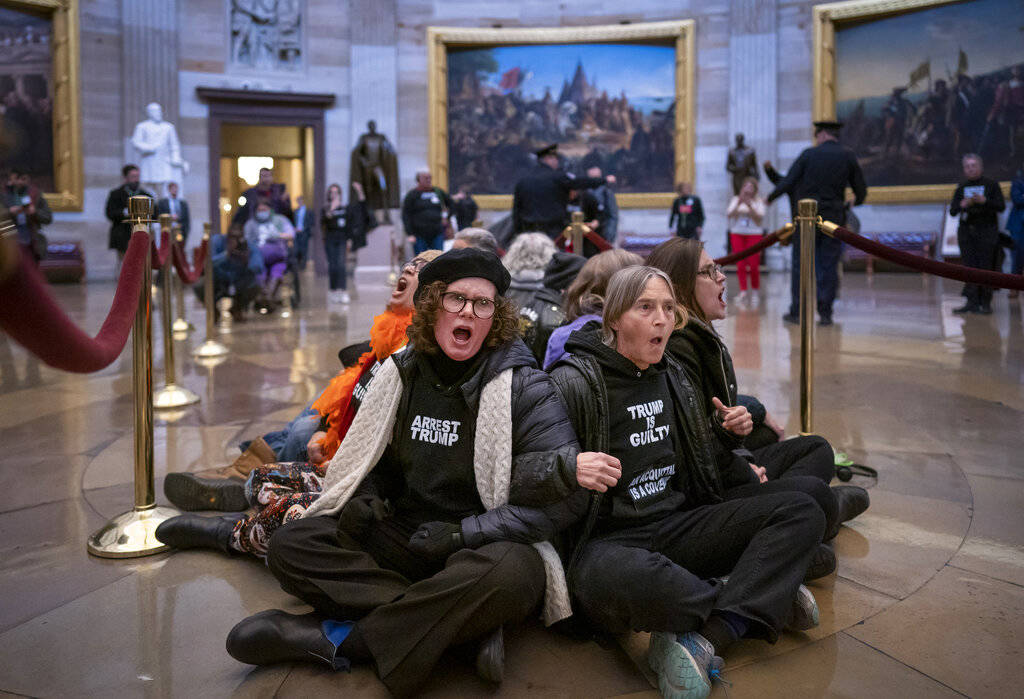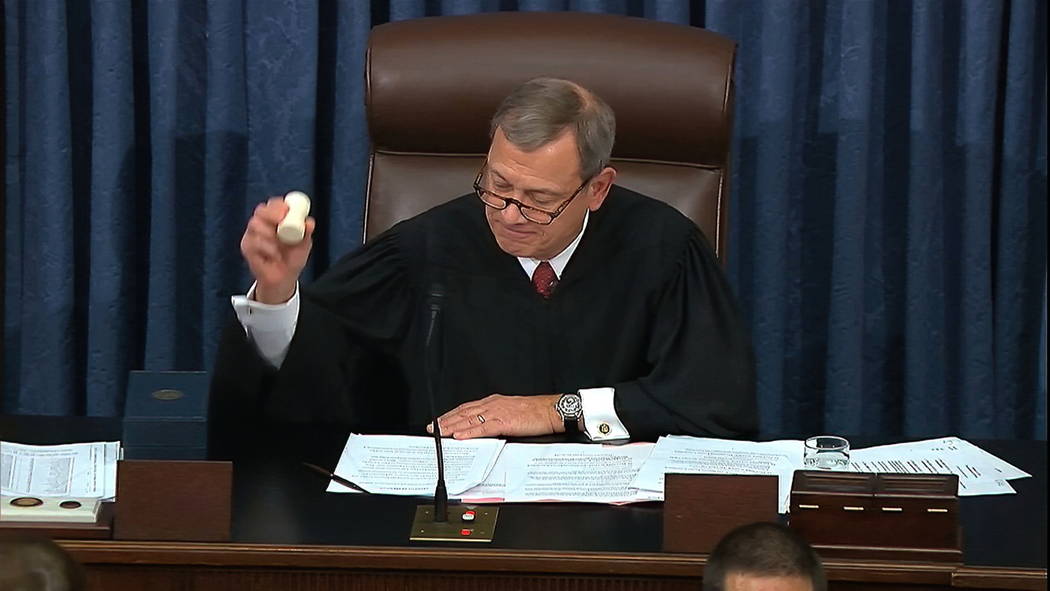Senate acquits Trump in impeachment
WASHINGTON — President Donald Trump was found not guilty by the Senate on Wednesday on House impeachment charges that he abused his office in soliciting Ukraine to investigate a political opponent and subsequently obstructed a congressional investigation.
Trump claimed vindication on Twitter with a promise to speak from the White House on Thursday “to discuss our Country’s VICTORY on the Impeachment Hoax!”
The acquittal ended the third Senate impeachment trial in U.S. history. The weight of the historical moment was palpable as senators stood at their desks in the ornate chamber and voted “guilty” or “not guilty” on the charges as a packed visitor’s gallery looked on.
Supreme Court Chief Justice John Roberts presided over the trial and votes that exposed the deep partisan divide in the country following the election of Trump three years ago.
The Senate voted, 52-48, to acquit the president on charges of abuse of power. Republican Sen. Mitt Romney of Utah voted with Democrats to convict the president
“The president is guilty of an appalling abuse of public trust,” Romney said prior to the vote on the Senate floor.
On the charge of obstruction of Congress, the Senate voted along party lines, 53-47, to find him not guilty. Romney voted to acquit on the second charge, saying the president’s conduct was excessive but not illegal.
Leaders in both parties said there was little doubt of acquittal, with a two-thirds majority — 20 Republicans needed to join the minority Democratic caucus to reach 67 votes — required to convict and remove Trump from office.
“That wasn’t going to happen,” said Senate Majority Whip John Thune, R-S.D.
But Romney’s break from the party and his reasoning in voting to convict the president dampened the enthusiasm of the Republican conference, and underscored the difficult decisions faced in judging the punishment for Trump’s conduct.
Republican predictions of Democratic defections fell away as several lawmakers considered to be swing votes announced they would vote to convict.
“The evidence is sufficient to convict the president on both counts,” said Sen. Doug Jones of Alabama, considered the most vulnerable Democrat up for re-election in 2020 from a state Trump carried heavily three years ago.
Jones was one of several Democrats being eyed closely to see if he would break from his party and vote with Republicans to acquit.
“I will not shrink from my duty,” Jones said. “It is simply a matter of right or wrong.”
Sen. Joe Manchin, D-W.V., also voted to convict the president after floating the suggestion of a censure resolution that failed to find bipartisan support.
With Romney the only lawmaker to break party ranks, the rest of the Senate voted along party lines.
Nevada Democrats Catherine Cortez Masto and Jacky Rosen supported conviction. Both said they weighed the evidence during the trial to reach their decisions.
Rosen said she listened to House impeachment managers and the president’s lawyers.
“Sadly, I find I have no choice but to vote to remove the president from office,” Rosen said.
Cortez Masto, a former federal prosecutor and former state attorney general in Nevada, said it didn’t take a law degree to come to a decision of guilty on both charges.
“You don’t have to study the law for years to know that stealing and cheating are wrong. It’s one of the first things we learn in our formative years,” Cortez Masto said. “And you don’t have to be a law school professor to realize that the president should not be using the job the American people gave him to benefit himself personally.”
House impeachment managers delivered stacks of documents to the Senate that were gathered during months of investigation that included testimony from State Department and national security officials about a shadow operation in Ukraine headed by Trump lawyer Rudy Giuliani.
The Senate voted along party lines last week to reject further testimony or documents in the case. While Democrats pushed for additional witnesses, Republicans said there was sufficient information to act.
Republicans Susan Collins of Maine and Lamar Alexander of Tennessee both criticized the president for his solicitation of a foreign government to help in his presidential re-election bid. But both said the crimes of abuse of office and obstruction did not rise to the level of seriousness required to remove the president from office.
Collins said that the House impeachment and the Senate trial that exposed his behavior served as “a pretty big lesson.”
Alexander said there was no need for more evidence to prove improper conduct by the president.
But, he said, “the Constitution does not give the Senate the power to remove the president from office and ban him from this year’s ballot simply for actions that are inappropriate.”
Trump has repeatedly claimed his innocence and criticized Democrats for conducting a partisan “witch hunt.” His lawyers said the House had overstepped its constitutional authority in an attempt to overturn the 2016 presidential election result and remove Trump from the 2020 ballot.
Jay Sekulow, the president’s lawyer, told reporters after the vote that the outcome was a victory.
“The president won. The office of the president won. The Constitution won,” Sekulow said.
White House press secretary Stephanie Grisham said “the Senate voted to reject the baseless articles of impeachment, and only the president’s political opponents — all Democrats, and one failed Republican presidential candidate [Romney] — voted for the manufactured impeachment articles.”
Nonetheless, Senate Minority Leader Chuck Schumer, D-N.Y., said Democrats could “hold their head high.”
House impeachment managers laid out details and testimony that backed the charges.
Trump used a July 25 telephone call to ask Ukrainian President Volodymyr Zelenskiy to announce an investigation into presidential political rival Joe Biden while the administration withheld nearly $400 million in military aid to that country.
When the solicitation was discovered and the House began an impeachment inquiry, Trump ordered officials and key witnesses not to comply with congressional subpoenas for testimony or documents. The military aid was eventually released without the announcement of an investigation.
The House voted in December largely along party lines to impeach the president. The Nevada congressional delegation fell in line behind their respective party leaders.
“President Trump was impeached with the support of a majority of the American people — a first in our nation’s history. And now he is the first president in history to face a bipartisan vote to convict him in the Senate,” said House Speaker Nancy Pelosi, D-Calif.
Rep. Dina Titus, D-Nev., who took part in the impeachment inquiry as a member of the House Foreign Affairs Committee, said she was proud of the work done by Democrats to uncover his “grotesque abuse of power.”
And the investigation into Trump may not end.
One of the witnesses who refused to testify before the House, former national security adviser John Bolton, has since said he would testify before the Senate under subpoena.
House Judiciary Committee Chairman Jerry Nadler said his panel would continue to investigate the “lawless president” and planned to subpoena Bolton to testify about Trump’s dealings in Ukraine, regardless of the Senate decision to acquit.
Contact Gary Martin at gmartin@reviewjournal.com or 202-662-7390. Follow @garymartindc on Twitter.



